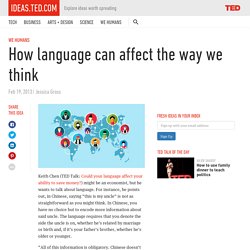

InformedOpinions.org – Amplifying women's voices for a more democratic Canada. International Scholarships - Canada-China Scholars' Exchange Program. Guidelines Scholarships are available for studies and research, for a combination of studies and language studies, or for language studies only.

Scholarships are not to be used towards a degree in China. Scholarships are tenable at Chinese institutions that admit scholarship recipients of the Government of China. These institutions are marked by an asterisk (*) in the list of participating Chinese institutions. For students, each award is tenable for a period of no more than 12 months and no less than four months. For mid-career professionals and faculty members, awards are tenable for a period of no more than 12 months and no less than eight weeks.
The scholarship is tenable between September 2017 and August 2018. Scholarship Value The award component provided by the Chinese Ministry of Education includes: Note: Funding provided by Global Affairs Canada is made through its legal name, the Department of Foreign Affairs, Trade and Development (DFATD). Scholarship Duration Eligibility Deadline. Read 700 Free eBooks Made Available by the University of California Press. The University of California Press e-books collection holds books published by UCP (and a select few printed by other academic presses) between 1982-2004.

The general public currently has access to 770 books through this initiative. The collection is dynamic, with new titles being added over time. Readers looking to see what the collection holds can browse by subject. The curators of the site have kindly provided a second browsing page that shows only the publicly accessible books, omitting any frustrating off-limits titles. The collection’s strengths are in history (particularly American history and the history of California and the West); religion; literary studies; and international studies (with strong selections of Middle Eastern Studies, Asian Studies, and French Studies titles). Sadly, you can’t download the books to an e-reader or tablet. Rebecca Onion is a writer and academic living in Philadelphia. Related Content: 30 Free Essays & Stories by David Foster Wallace on the Web. - cstprintflag2.pdf. Les noms des stations de Métro prises au pied de la lettre s’exposent.
Golem13 Les noms des stations de Métro pris au pied de la lettre s’exposent Art Design- Jeudi 28 mars 2013 · Tags: metro, paris· 3 commentaires Le photographe Janol Apin expose son travail humoristique sur les stations de Métro de Paris du 1er avril au 26 avril 2013.

Au milieu des années 90, le photographe Janol Apin à mise en scène le nom des stations du métro Parisien avec humour et imagination. Voici une exposition qui lui est consacrée au Centre d’animation Maurice Ravel dans le XII ème à Paris du 1er au 26 avril 2013. » METROPOLISSON » : La photographie est un grand labyrinthe ou les regards se croisent. Derniers articles dans Art Design Articles similaires Commentaires 3 Responses to “Les noms des stations de Métro pris au pied de la lettre s’exposent” coralie dit : 02/06/2013 à 13:33ni drôle ni subtil. dommage Répondre LISOPRAWSKI dit : 11/05/2013 à 18:12tres reussi Répondre Florian dit : 28/03/2013 à 16:33C’est ultra vieux non ? Laisser un commentaire Ce que vous consultez Mots-clefs. 5 examples of how the languages we speak can affect the way we think.
Keith Chen (TED Talk: Could your language affect your ability to save money?)

Might be an economist, but he wants to talk about language. For instance, he points out, in Chinese, saying “this is my uncle” is not as straightforward as you might think. In Chinese, you have no choice but to encode more information about said uncle. The language requires that you denote the side the uncle is on, whether he’s related by marriage or birth and, if it’s your father’s brother, whether he’s older or younger. “All of this information is obligatory. This got Chen wondering: Is there a connection between language and how we think and behave? While “futured languages,” like English, distinguish between the past, present and future, “futureless languages” like Chinese use the same phrasing to describe the events of yesterday, today and tomorrow. But that’s only the beginning. Featured illustration via iStock.